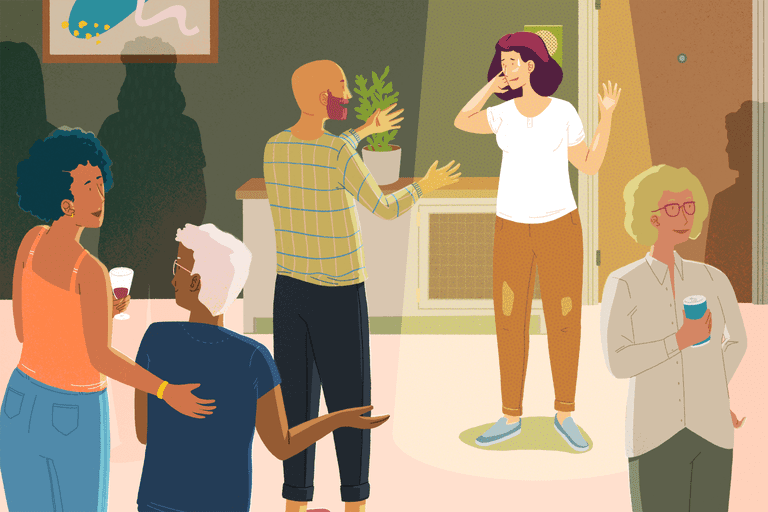
How To Handle Re-engaging with society after all of this time has passed
Most people have a specific supermarket that they shop at. After a few trips to the store, you know exactly where the things that you buy are located. However, if all of a sudden you decide to try Fairway instead of Morton William’s – you might find it takes a little longer to acquire what you are looking for.
This analogy helps us understand why socializing in the post-pandemic world is so difficult. For the entirety of our lives, we were able to live in a society where we had the freedom to go wherever, to see whomever, and to wear whatever we wanted – that is all we knew. Then, all of a sudden 2020 arrives and everything we knew about socializing and interacting was immediately turned upside down.
After over a year and a half of living under these circumstances, our social tanks are empty.
Over the course of the last year, social isolation has become our new normal. Even non-verbal forms of communication that humans rely on to connect with one another like eye contact, body language, and facial cues disappear through the phone and camera.
Being back in person is bound to hit us physically and mentally because our senses will feel like they are in overdrive.
Cognitive behavioral techniques can help make not only the idea of socializing, but the act of socializing much less stressful and way more exciting.
Set limits on how much you socialize.
Give yourself a goal of how much time you want to spend socializing during the day. Try not to overload yourself. Start slowly and understand that discomfort is normal.
Try to decrease comparing what you were like before the pandemic to who you feel you are now; we have all changed and grown as people over the course of the last year.
Listen to your body and your needs to see if you can learn what your social limits are now, even if you aim to increase them over time.
FOMO is OKAY.
FOMO, the fear of missing out is normal! It is essential to realize that people are readjusting to society at different paces. For some, it will take longer and be a bit harder than for others. Our friends and families may be going out and doing things that we are not ready to do yet. That is okay. Social media often distorts reality, so while it may seem that everyone is all of a sudden back to normal and that no one is struggling- that is often not the case.
According to a survey conducted by the American Psychological Association, 48% of fully vaccinated adults feel nervous and uneasy about returning to in-person interactions once the pandemic is over.
Allow yourself to readjust at the pace you feel is appropriate.
Expose yourself to your feels slowly
Try to recognize the desire to avoid the things you fear, like going out into public spaces. One thing to try is to make a list of the things that might be a bit scary to try (going into a crowded area, going back to work, eating indoors) and rate them on how scary they are. Try to do the ones that are the least scary first and work your way up to the bigger items.
Using exposure can help us learn that sometimes the things we think are scary, are easier once we do them!
Remind yourself that this is temporary.
How you feel right now is not a reflection of who you are. Be kind to yourself and understand that the struggles you are facing right now are simply an artifact of what you lived through. Being forced to be on high alert, extremely cautious, and vigilant to our surroundings puts a strain on us. Undoubtedly, it’s going to take time for our mind and our bodies to readjust to the idea that our lives are healthy and safe.
Be open about how you feel.
Sharing these feelings of anxiety and stress with loved ones and friends can help you see that other people are sharing these feelings as well. Being vulnerable can be hard, but if others are willing to share back, it can really help normalize our experience.
If you spent an entire year in another country that has a completely different language and culture than what you knew prior to that experience, returning home would not be effortless – you would have to readjust back to what was originally normal.
